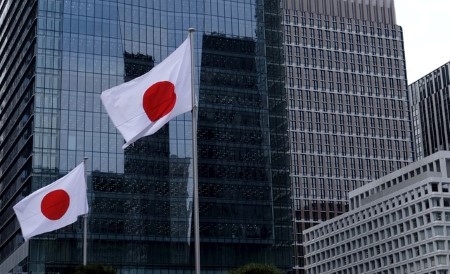




Quarterly Economic Growth Release: More BSP cuts to come
 DOWNLOAD
DOWNLOAD

Monthly Economic Update: Fed catches up
 DOWNLOAD
DOWNLOAD

Inflation Update: Steady and mellow
 DOWNLOAD
DOWNLOAD


China prices – inflation or disinflation?

Nov 9 – Attention in Asia on Wednesday turns to Chinese inflation data, with investors expecting disinflationary pressures to have picked up in October but not at such a pace that would deflate the recent rebound in optimism about the economic recovery.
Producer and consumer price inflation figures will be released, the highlights of a regional calendar that also includes Japanese bank lending, trade and current account figures, Indonesian retail sales, and Philippines GDP.
Asian markets open on Thursday to a fairly benign global backdrop. US bond yields continue to slide, oil prices are the lowest since July – WTI crude is down 20% from its September peak – and Wall Street is resisting profit-taking pressure to hold onto its recent gains.
A solid 10-year US Treasury bond auction on Wednesday helped extend this week’s sweeping rally that is driving yields down across the curve. Global yields are moving too – the 10-year Japanese Government Bond yield is back below 0.85%, having come within two basis points of 1% last week.
The decline in US bond yields is removing some of the dollar’s shine, which in turn is allowing Asian currencies to fight back. China’s yuan this week, for example, is the strongest in more than two months, enjoying a reprieve from the heavy downward pressure of recent months.
People’s Bank of China governor Pan Gongsheng said Beijing will resolutely guard against the yuan overshooting, according to a report in the Financial News, a newspaper owned by the PBOC, and a growing number of global asset managers may be taking more of a shine to Chinese assets.
Figures on Thursday are expected to show annual producer price deflation accelerating slightly to -2.7% from -2.5% in September, snapping a run of three months of improvement. Annual consumer inflation is also expected to slip back to -0.1% from 0.0%.
Another choppy day in China’s property sector awaits after Ping An Insurance Group shares slumped to a one-year low on Wednesday after Reuters reported Chinese authorities had asked the firm to take a controlling stake in troubled developer Country Garden.
In Japan, meanwhile, among the big companies releasing their latest reports on Thursday are Nissan, Honda, Sony, and the wider Softbank Group.
The yen remains vulnerable too, slipping further below the psychologically key 150 per dollar level. It is now trading near 151.00 per dollar and in sight of the 152.00 mark that many analysts think might be the threshold for direct yen-buying intervention from Japanese authorities.
Yen traders on Thursday are also eyeing Japanese bank lending figures for October and September’s trade and current account report.
The Philippine peso will be highly sensitive to the country’s third-quarter GDP report. The central bank said on Oct. 26 that Q3 annual growth will likely be around 4.5%.
Here are key developments that could provide more direction to markets on Thursday:
– China PPI and CPI inflation (October)
– Japan trade and current account (October)
– Fed’s Powell speaks
(By Jamie McGeever; Editing by Josie Kao)
This article originally appeared on reuters.com





 By Reuters
By Reuters